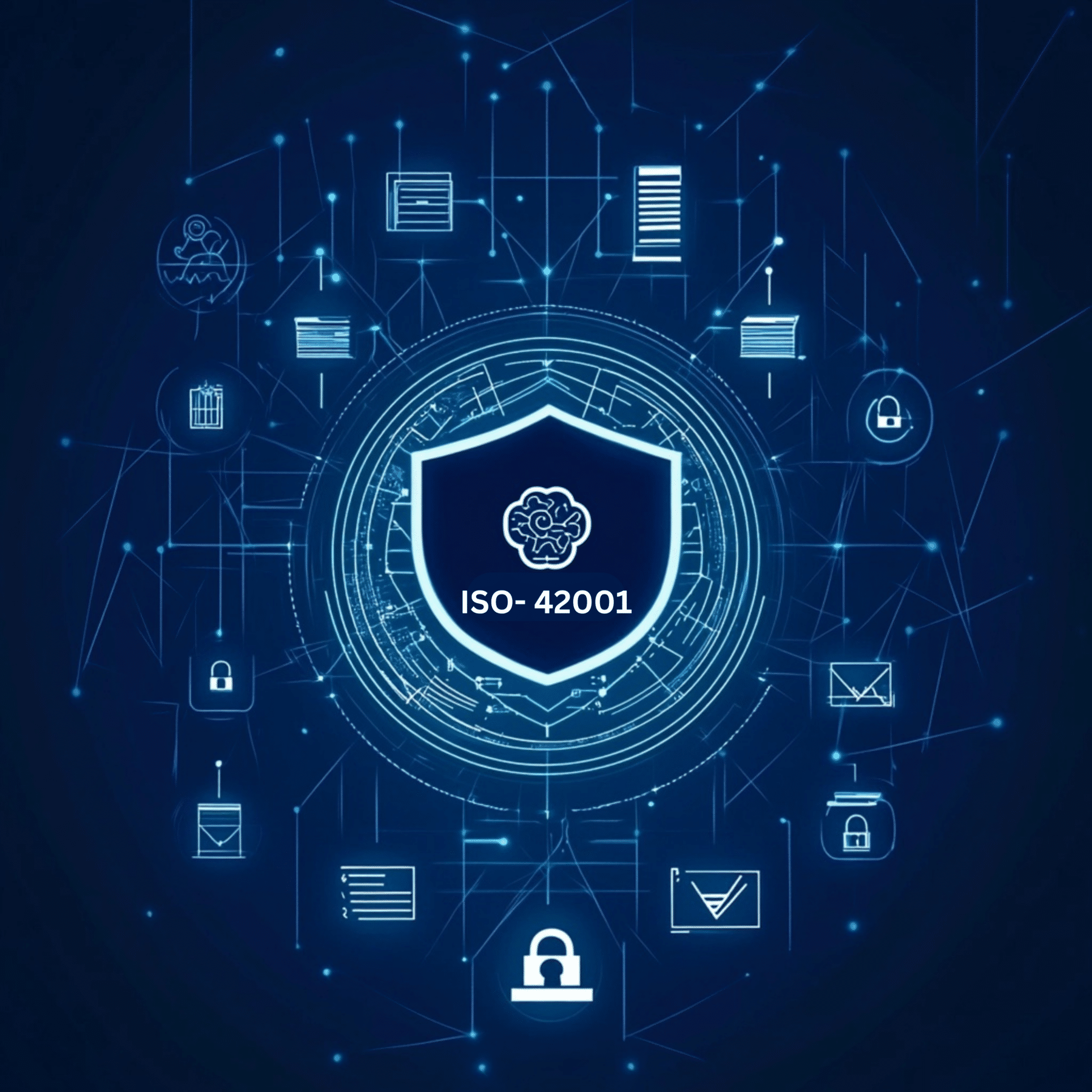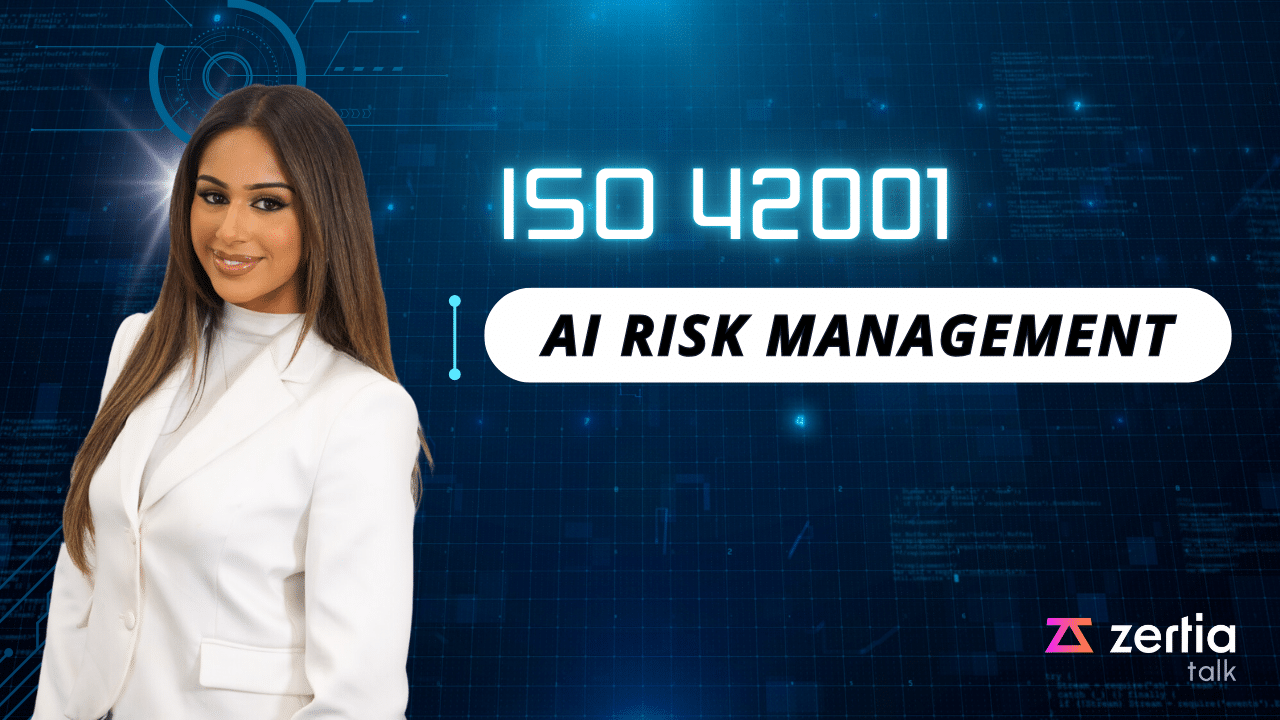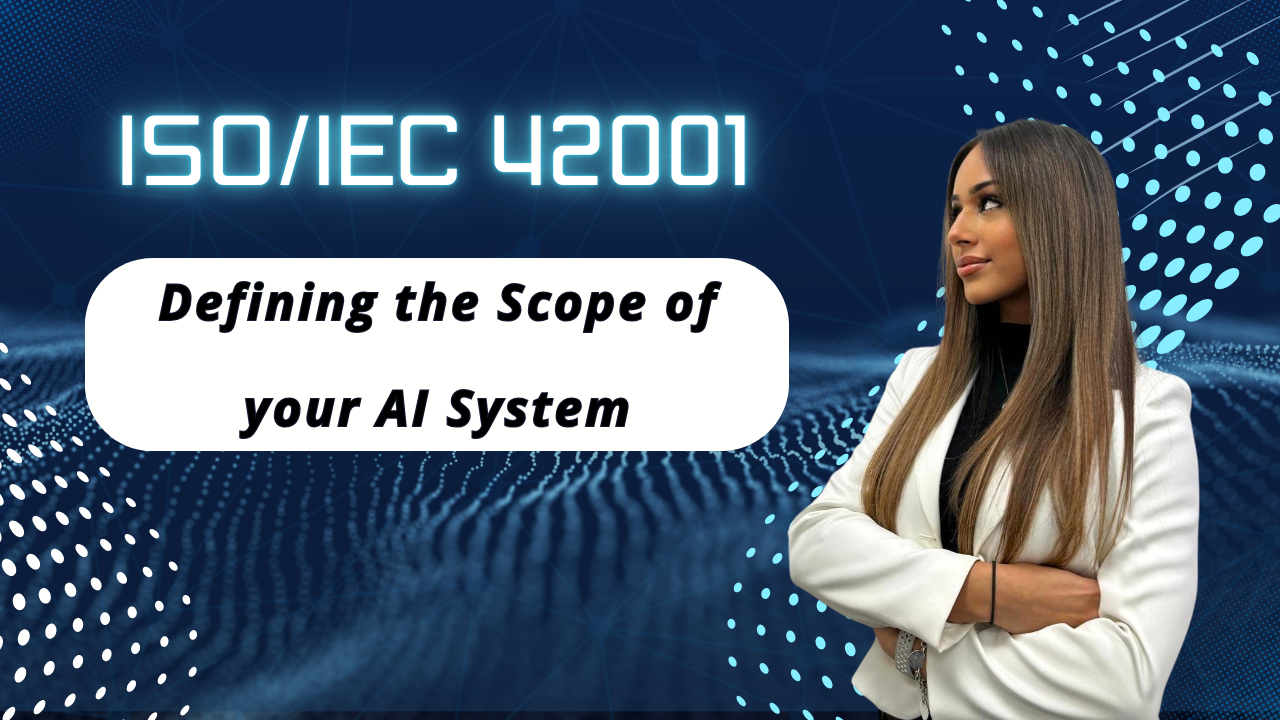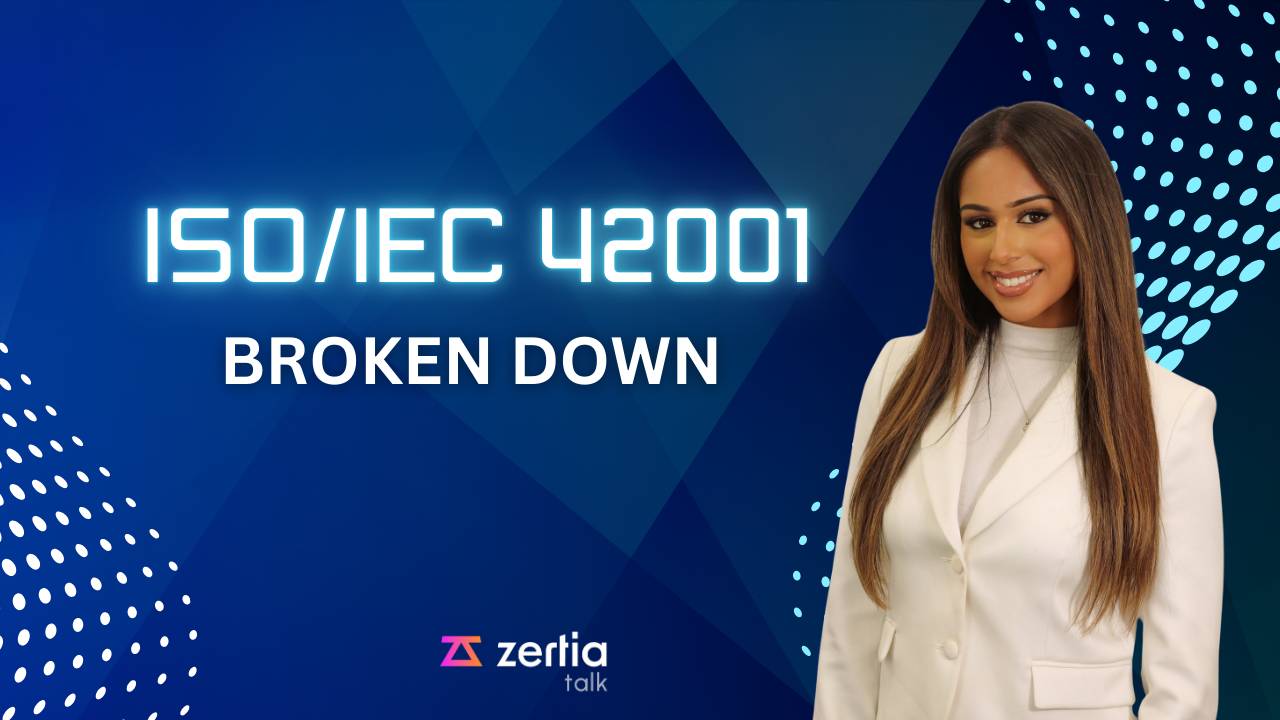What Is ISO/IEC 42001:2023 and What Is This Certification For?
The ISO/IEC 42001:2023 certification is a key ethical, legal, and technical guide for companies managing artificial intelligence (AI) systems. Developed to address the challenges of AI in the coming years, this standard provides a framework to help organizations ensure their AI systems are secure, ethical, and compliant with relevant regulations.
Why Is ISO/IEC 42001:2023 Important?
As AI technologies like machine learning and deep learning evolve, they often lack transparency and explainability, creating uncertainties in how these systems function. Deep learning, in particular, operates with a black-box model, where input and output data are known, but the internal processes are not easily understood.
This unpredictability contrasts with traditional programming and is especially concerning in systems with high levels of autonomy, like autonomous vehicles. As Mark Leven, lead researcher at the National Physical Laboratory in the UK, points out, these uncertainties make a standard like ISO/IEC 42001:2023 essential to ensure trust and accountability in AI systems.
What Is ISO/IEC 42001:2023?
ISO/IEC 42001:2023 sets out a comprehensive framework for managing AI systems, covering multiple areas such as ethics, security, transparency, design, development, and implementation. It ensures that certified AI systems operate according to high standards, providing clear guidelines for companies to follow throughout the AI lifecycle.
A Framework for Ethical and Secure AI Management
The certification ensures that AI systems are built and deployed ethically, addressing concerns related to privacy, data protection, and transparency. Companies certified under ISO/IEC 42001:2023 commit to continuous improvement and compliance, ensuring that their AI systems meet both regulatory standards and ethical guidelines.
What Does the Certification Require?
The ISO/IEC 42001:2023 certification process involves several key phases to ensure AI systems are developed and managed appropriately:
- Planning: Companies must define the scope and application of their AI system, specifying the areas it will be used and its limitations. This step requires a formal declaration of application, which outlines the necessary controls and guidelines for the system.
- Implementation: AI systems must be developed with high standards in ethics, transparency, and security, ensuring full compliance with regulations and legal requirements.
- Review and Monitoring: The system’s performance must be continuously monitored, and corrective measures applied when necessary to ensure that the AI operates as intended.
- Optimization: Continuous improvements are mandatory, ensuring the system evolves and adapts based on the monitoring results and real-time feedback.
Seven Essential Elements of ISO/IEC 42001:2023
The ISO/IEC 42001:2023 standard covers several crucial aspects of AI management, which can be summarized in seven essential points:
1. Risk Management
Organizations must implement processes to identify, analyze, assess, and monitor risks throughout the entire lifecycle of the AI system. This is crucial to ensuring that risks are mitigated early and managed effectively over time.
2. Assessing the Impact of AI
The standard requires organizations to define processes for assessing the potential impact of AI systems on users and society. This includes understanding how AI could affect the social context in which it is deployed and taking steps to mitigate any negative consequences.
3. Information Governance
Clear guidelines are necessary for managing the information that feeds the AI system. These guidelines must align with the company’s strategic objectives and ensure transparency in how data is handled. Organizations must also define a robust governance structure to manage roles, responsibilities, and decision-making processes.
4. Privacy and Security
Compliance with privacy regulations is critical when managing data, and organizations must also protect AI systems from potential cyber threats. Privacy safeguards must be built into the system’s design, and continuous assessments should ensure that the system remains secure.
5. Lifecycle Management
Organizations must manage the entire lifecycle of the AI system, from planning and development to deployment and testing. Lifecycle management ensures that the AI system evolves, meets performance benchmarks, and adheres to regulatory requirements at every stage.
6. Performance Optimization
Continuous performance optimization is a crucial part of ISO/IEC 42001:2023 certification. Companies must actively work to improve their AI systems, ensuring that they are efficient, effective, and aligned with the latest technological and regulatory advancements.
7. Supplier Management
The certification extends beyond internal operations. Companies must implement supplier management processes, ensuring that all external partners involved in developing and supporting the AI system adhere to the same high standards.
Conclusion: A Comprehensive Approach to AI Management
ISO/IEC 42001:2023 provides a structured approach to AI management, ensuring that AI systems are developed, deployed, and monitored according to ethical, legal, and technical standards. It guarantees compliance, transparency, and continuous improvement, making it an essential certification for companies in the AI sector. By following these guidelines, organizations can build trust, mitigate risks, and ensure that their AI systems function responsibly in an increasingly regulated environment.






